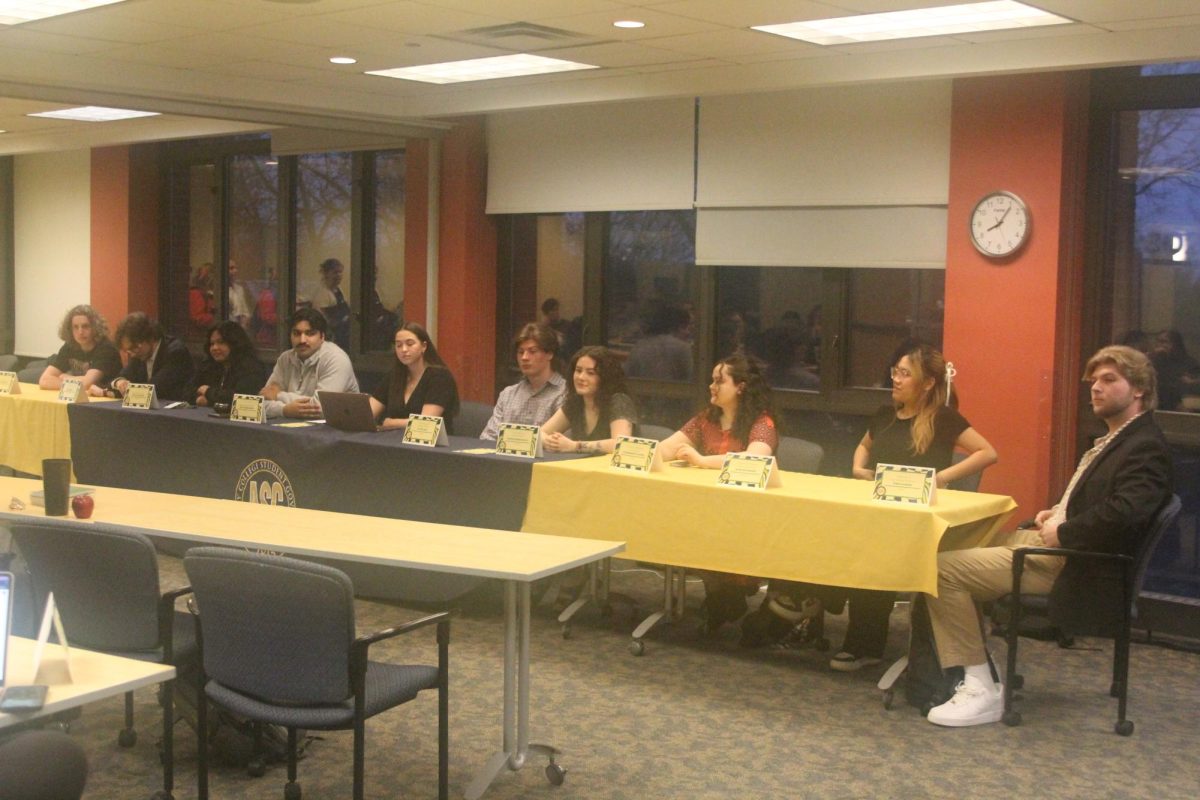By KATIE PRENDERGAST ([email protected])
The first confirmed case of the H1N1 virus hit campus on October 7. Since then many rumors have circulated about the flu.
When asked if she heard any rumors, Sarah Jones,’11, said there was talk last week that Baldwin Hall was being shut down in response to swine flu. The dormitory is still open, however.
Lauren Strawser, ’11, said she was told that a sick student hangs out at Grounds for Change and is spreading his infection to anyone who visits the campus coffee house.
None of the volunteers at GFC could confirm this rumor. “GFC is a social area and people come and go.” R.J. Stieger, ’12 said. The same thing could be said about other places people gather on campus.
Some students claimed that 60 percent of the student body would be infected by the last week of October and the number would increase to 80 percent by last Friday. Others were certain that the campus would shut down before that – if 45 percent of Allegheny’s students came down with the flu.
Joe DiChristina, the college’s Dean of Students, said none of these rumors are true. As supervisor of the school’s Health Center, he is working to closely monitor the situation.
“I have oversight responsibilities with the Health Center,” he said. As a result, DiChristina receives frequent updates on the spread of H1N1 through campus. According to the dean, there were about 100 suspected cases of swine flu on campus as of Friday, and 10 more students visited the Health Center this Monday.
Health Center director Sue Plunkett confirmed DiChristina’s information. “We have had around 110 or 120 cases of H1N1,” she said in an e-mail sent Tuesday.
That number is equivalent to about 5 percent of the student body, nowhere near the alleged 60 percent.
President Mullen’s recent mass e-mail to the student body also confirms the 100-case estimate. “We believe we’ve had approximately 100 cases, and we have been fortunate that those cases include no hospitalizations. On average, students are recovering in four or five days. We continue to monitor the situation and to follow CDC guidelines – and we appreciate everyone’s efforts to control the spread of H1N1 by taking the precautions and following the self-care guidelines posted online.”
Mullen is referring to the guidelines e-mailed to students on Oct. 13. They can also be found on the Inside Allegheny Web site.
If you do experience flu symptoms, the college’s guidelines recommend “self-isolating” until your fever is gone for at least 24 hours.
DiChristina recommended limiting your exposure to people who may be sick or restricting contact with others if you start to feel flu-like symptoms. He also said the most important thing students can do is to use the hand sanitizer and sanitizing wipes the college has provided in classrooms, dining halls and other campus buildings.
Students anxious about the school work they will miss if they have to be quarantined shouldn’t worry, DiChristina said. According to the dean, the administration’s policy is to operate on a “trust factor” between students and faculty. He urges students to e-mail their professors and take a few days off to get better. Professors will work with students to make up missed assignments.
“This strain of the flu will be with us for the foreseeable future until people develop immunity to it,” DiChristina added.
That won’t happen until people are vaccinated, or when those infected with the H1N1 virus build up immunity through exposure to the illness.
Sue Plunkett recommends that all students receive both the seasonal flu shot and the new H1N1 vaccination. She said that the Health Center has run out of the seasonal flu shot, but they’ve ordered more.
“We have applied to be a distributor of H1N1 vaccine, but we do not know if or when we will receive it,” Plunkett said.
DiChristina said that the Health Center is no longer testing for the H1N1 virus. The school is operating on the assumption that all flu symptoms are evidence of swine flu because the usual flu season runs from January to March, ending around the time students are on spring break.
According to DiChristina, the swine flu is actually spreading through campus slower than the seasonal flu usually does.
As far as what to expect for next semester, DiChristina and Plunkett agree that the situation is unpredictable.
“I don’t know if we will have both viruses [seasonal and H1N1] at the same time,” Plunkett said. “Again, getting vaccinated against both viruses is the best way students can protect themselves.”







Mitchell Flockhart • Jan 27, 2010 at 6:23 am
Thats some useful information there, very informative cheers.
Hubert Bear • Jan 27, 2010 at 5:19 am
Thanks for taking time to write such a useful article